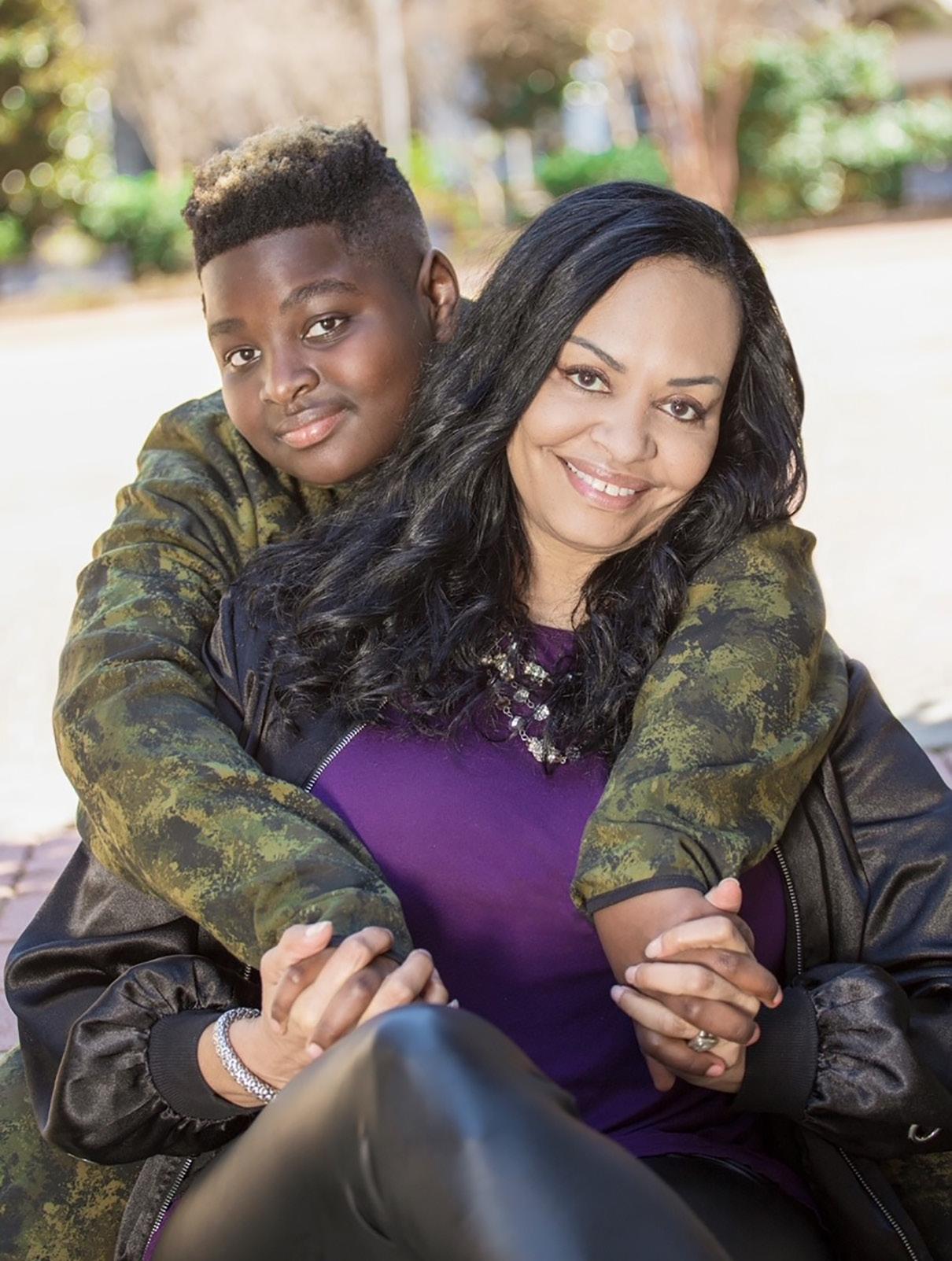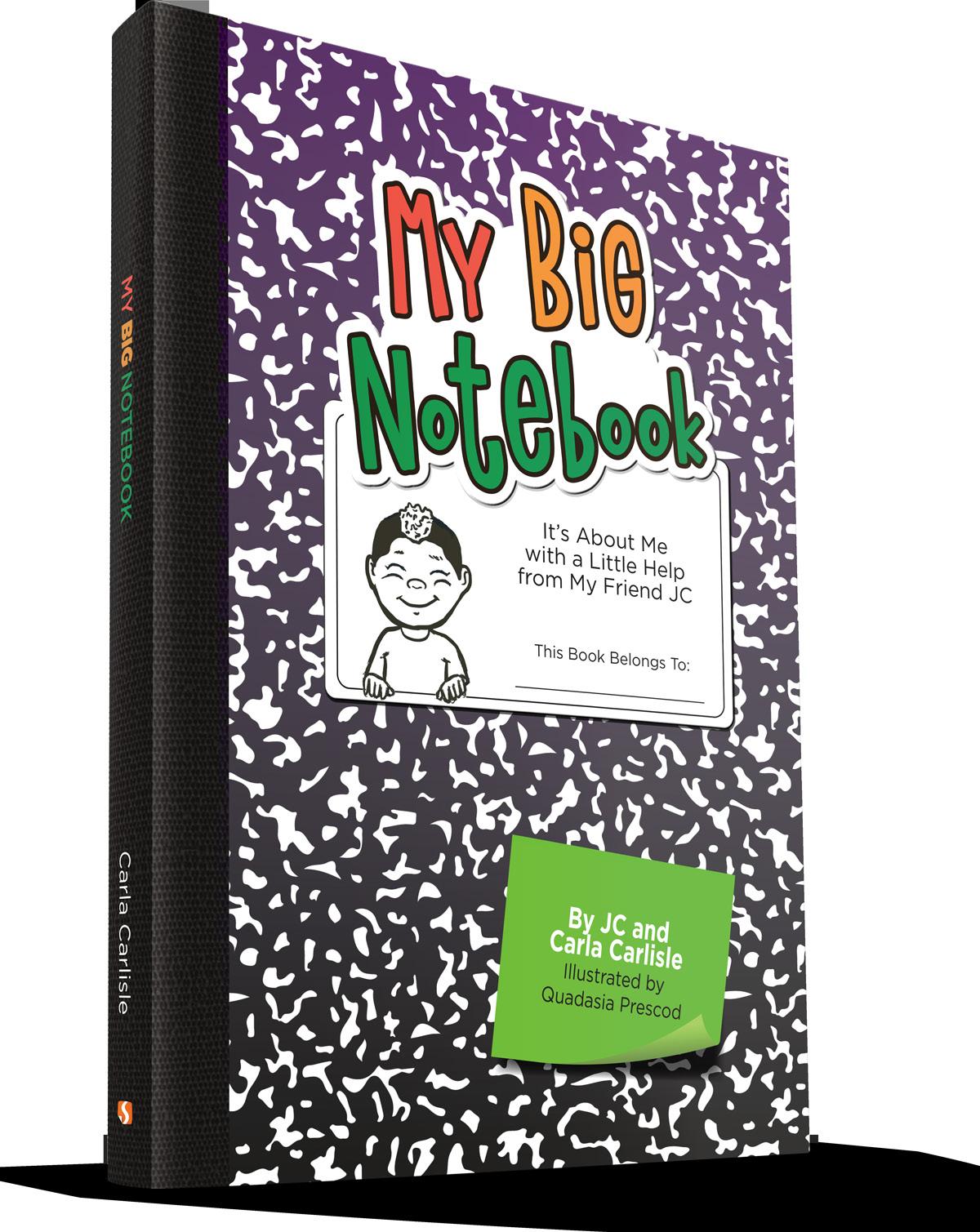
2 minute read
The B est Relationships Start With Trust Mother and Son Create Helpful Book from Personal Experience
by Rosanny Crumpton
Throughout a tumultuous journey, Carla A. Carlisle has invested heartache, emotions and strength to help JC, who is now her adopted son. Carlisle is a mental health advocate and author who uses her experience and tools she gained along the way to help others.
In 2010, Carlisle became a foster parent to a 10-day old baby boy who was two months premature. He was the 11th child of his birth mom who had lost her rights to the other 10 children.
At six months old, JC was given back to his birth mom by the court. Given her concern for his safety, Carla contacted JC’s birth mom about a week later. For the following six years, Carlisle co-parented with the birth parents, an experience she describes as tumultuous at best.
When JC started pre-school, he was with Carlisle about 75 to 80 percent of the time when she noticed he was showing signs of trauma. After JC had a major mental health crisis at age 6, Carlisle gained emergency custody of him.
Over the next several years Carlisle went through the courts to gain various forms of custody of JC, including emergency, temporary and permanent custody. Carlisle eventually began the adoption process, which was completed in 2018.
After a lot of heartache, hope, prayer, over $100,000 and eight years later, Carla became JC’s legal mother.

During those difficult eight years, Carla described feeling like she had no control. “Loving someone so much and not being able to protect them” was a humbling experience, to say the least. She felt she had lost sight of her own personal power. As a person of faith, she decided to “let go and let God.”
Carla sought out targeted tools she needed to support herself and her son through the traumatic experience. When she gained emergency custody of JC, she took the Trauma Informed Parent 8-week class offered by Rowan County Department of Social Services. From there she signed up for other trainings, seminars and webinars to learn as much as she could. She started working with various therapists for herself and JC.
“I learned so much about myself; it changed me for the better in a lot of ways,” Carlisle said. Throughout the process, she learned she also had to take care of herself.
Carlisle and JC went through trauma-focused behavioral therapy together which is where they learned about the cognitive triangle, a concept they include in their book.
Carlisle partnered with her son to write “My Big Notebook: It’s About Me with a Little Help from My Friend JC,” which was published by SPARK Publications.


“My Big Notebook” received the 2022 Platinum Hermes Creative Award and the Reader’s Favorite Award, and is intended for elementary school and early middle school aged children with its timeless methods and strategies. Carlisle and JC wrote the book to be interactive and serve as a buddy to the reader. It normalizes mental health in children and provides education about feelings and how to express them through coloring, journaling exercises, positive affirmations and other additional tools.
“To see the book with his own eyes has been amazing,” said Carlisle. The book reminds her of how far they’ve come, she added. Looking through the book helped Carlisle realize that the healing journey is an ongoing process, she said. With these tools “we take care of our emotional and mental wellness just like we’re supposed to take care of our physical wellness,” Carlisle said.
“JC was very vocal about how he wanted it (the book) to go,” she continued. “My Big Notebook” helps children connect to their feelings and see beyond their circumstances. It is not intended to replace therapy; however, it provides tools to cope, process what they have going on in their lives and opens the door for them to be expressive, she said.
A labor of love, Carlisle and JC wrote “My Big Notebook” to support children who are dealing with anxiety, trauma, toxic stress, loneliness, isolation, illness and missing loved ones. It can be a tool that children use independently or with adult support as needed. She said, “Kids can laugh and have a little fun while they’re learning something.” P










